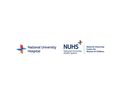14th Wong Hock Boon Paediatric Masterclass

ORGANISED BY

IN PARTNERSHIP WITH

Proudly organised by the Khoo Teck Puat – National University Children’s Medical institute, National University Hospital (NUH), the 14th edition of the Wong Hock Boon Paediatric Masterclass, will take place from 21 to 24 August 2025. Since its inception in 2011, the Masterclass has grown into a cornerstone event in the region’s paediatric education calendar. It continues the long-standing tradition of excellent teaching within our academic cluster, while honouring the legacy of our founding professor, Emeritus Professor Wong Hock Boon, a visionary in paediatric medicine and education.
This annual event brings together a diverse audience of healthcare professionals from Singapore and across the region to share updates, exchange ideas, and deepen clinical understanding in both general and sub-specialty paediatrics. The Masterclass has become a dynamic platform for paediatricians, nurses, allied health professionals, and medical educators to connect and collaborate, with the common goal of improving child health outcomes through knowledge and practice.
Key Highlights
Pre-Masterclass event: Healthy Gut, Healthy Start – Primer in Nutrition, Feeding and the Microbiome
[21 August Afternoon & 22 August Afternoon]
The Nutrition Primer offers a unique opportunity to explore foundational aspects of child nutrition and its lasting impact on health. The Primer will feature invited speakers including Professor Sirinuch Chomtho from Chulalongkorn University, who will present on the long-term health effects of complementary feeding, and Professor Lee Way Seah from University Tunku Abdul Rahman, who will share clinical insights into the use of therapeutic diets. Designed for paediatricians, dietitians, and healthcare professionals across the region, the Primer promises to be an enriching experience bridging science and practice in early childhood nutrition.
Inaugural National University Hospital Paediatrics – Chang Gung Memorial Hospital Paediatrics Joint Symposium [22 August Morning]
One of the key highlights of this year’s pre-masterclass is the inaugural joint symposium between the paediatric entities of National University Hospital (NUH) and Chang Gung Memorial Hospital (CGMH). This is a significant milestone in our enduring academic collaboration and exemplifies our shared dedication to cross-institutional partnerships in paediatric care. The symposium will bring together faculty from both institutions to explore emerging trends and pertinent topics centred on gut microbiome science. We are honoured to have esteemed clinicians from CGMH, Professor Chiu Cheng-Hsun and Professor Chen Chien-Chang, join our faculty, Associate Professor Marion Aw, Professor Matthew Chang, and Dr James Huang, for an insightful morning.
Wong Hock Boon Paediatric Masterclass
[23-24 August]
The main Wong Hock Boon Paediatric Masterclass programme features a thoughtfully curated programme that spans a broad spectrum of paediatric subspecialties. This year’s programme features eminent speakers who are our Wong Hock Boon visiting professors – Associate Professor Mary Beth Son from Boston Children’s Hospital and Professor Ian Maconochie from Imperial College NHS Healthcare Trust.
In addition, our department’s faculty will provide practical updates and new perspectives that can be applied directly to day-to-day clinical practice. Adding a dynamic twist to the programme, this year’s Masterclass will feature a lively debate session exploring the topic “Artificial Intelligence in Medicine is More Harm than Good.” This thought-provoking exchange will bring together seasoned clinicians with differing viewpoints to examine the promises and pitfalls of AI in clinical practice.
Join us this August for a meaningful learning experience where knowledge meets collaboration.
REGISTER HERE
1. If you are:
- NUH Paediatrics (KTP-NUCMI) or Obstetrics & Gynaecology staff
- Medical or nursing students
2. Others: Register here
Former fellows of NUH Paediatrics, please note:
- Before making your payment, please provide email proof of your working period in NUH Paediatrics. Send the proof to nuwoc_comms@nuhs.edu.sg. Once you receive a confirmation email from us, you may proceed with the payment.
- If you have already made the payment but unable to provide the required proof, an additional payment will be required to cover the difference.
REGISTRATION FEES (SGD)
Categories | Wong Hock Boon Paediatric Masterclass only: 23 – 24 August 2025 | 1. Inaugural NUH-CGMH Joint Symposium 2. Primer in Nutrition, Feeding, and the Microbiome 3. Wong Hock Boon Paediatric Masterclass: 21 – 24 August 2025 | 1. Inaugural NUH-CGMH Joint Symposium 2. Primer in Nutrition, Feeding, and the Microbiome: 21 - 22 August 2025 |
| External or Overseas Doctors/ General Practitioners / Paediatricians | $250 | $300 | $150 |
| NUHS Doctors (NUH/ NTFGH/ AH / NUP) NUHS Department of Family Medicine to register under “NUHS Doctors” | $190 | $250 | $120 |
| Nursing / Allied Health Professionals (External / Overseas Organisations / NUHS) | $120 | $200 | $100 |
| Former fellows of NUH Paediatrics • Before making your payment, please provide email proof of your working period in NUH Paediatrics. Send the proof to nuwoc_comms@nuhs.edu.sg. Once you receive a confirmation email from us, you may proceed with the payment. • If you have already made the payment but unable to provide the required proof, an additional payment will be required to cover the difference. | $200 | $240 | $120 |
Registration closes on 14 August 2025.
Terms and conditions:
- Please note that registration fee is non-refundable but can be transferred to another healthcare professional.
- Ensure you select the correct category before confirming your payment. Bank exchange rates apply for international applicants. CME/CPE points will be awarded to participants for their attendance.
For more enquiries, email nuwoc_comms@nuhs.edu.sg
PROGRAMME
Pre-Masterclass: Healthy Gut, Healthy Start – Primer In Nutrition, Feeding And The Microbiome
| Time | Programme |
| 21 Aug 2025 (Thursday) Afternoon | |
| 1.30pm–2.00pm | Registration |
| 2.00pm–2.10pm | Welcome And Introduction |
| 2.10pm–2.50pm | What GUSTO Birth Cohort Taught Us About Cardiometabolic Health Prof Lee Yung Seng, Head, Khoo Teck Puat – National University Children's Medical Institute, National University Hospital |
| 2.50pm–3.30pm | Complementary Feeding – Revisiting The Long-Term Health Impact Prof Sirinuch Chomtho, Professor in Paediatrics, Head of Nutrition Division and Center of Excellence in Paediatric Nutrition, Department of Paediatrics, Faculty of Medicine, Chulalongkorn University, Bangkok, Thailand |
| 3.30pm–4.00pm | Tea Break |
| 4.00pm–4.30pm | Fuelling Young Minds: Unlocking Children’s Potential Through Nutrition Ms Wong Chui Ying, Principal Dietitian, Department Of Dietetics, National University Hospital |
| 4.30pm–5.00pm | Obesity – Dysbiosis, Diet And Drugs Dr Nicholas Ng, Consultant, Division Of Paediatric Endocrinology, National University Hospital |
| 5.00pm–5.30pm | Therapeutic Diets Prof Lee Way Seah, MSEF Chair Professor In Medicine And Professor In Paediatrics, M Kandiah Faculty Of Medicine And Health Sciences, University Tunku Abdul Rahman, Kajang, Selangor, Malaysia |
| 5.30pm | Closing |
| Inaugural National University Hospital Paediatrics-Chang Gung Memorial Hospital Paediatrics Joint Symposium: Human Microbiome and Health | |
| Time | Programme |
| 22 Aug 2025 (Friday) Morning | |
| 8.15am–8.50am | Registration |
| 8.50am–9.00am | Welcome And Introduction Dr Sunitha Vimalesvaran, Resident Physician, Division Of Paediatric Gastroenterology, Nutrition, Hepatology And Liver Transplantation, National University Hospital Opening Address Prof Lee Yung Seng, Head, Khoo Teck Puat – National University Children’s Medical Institute, National University Hospital Prof Chiu Cheng-Hsun, Professor, Department Of Paediatrics, Chang Gung Memorial Hospital And Chang Gung University, Taiwan |
| 9.00am–9.30am | The Human Gut Microbiome – In Health And Disease Prof Chiu Cheng-Hsun, Professor, Department Of Paediatrics, Chang Gung Memorial Hospital And Chang Gung University, Taiwan |
| 9.30am–10.00am | Microbiota Gut-Brain Axis – Implications For Disorders Of Gut-Brain Interaction A/Prof Marion Aw, Head & Senior Consultant, Division Of Paediatric Gastroenterology, Nutrition, Hepatology And Liver Transplantation, National University Hospital |
| 10.00am–10.15am | Q&A |
| 10.15am–10.45am | Tea Break |
| 10.45am–11.15am | Engineering Microbes For Health And Disease Prof Matthew Chang, Provost’s Chair and Professor, Department of Biochemistry, Yong Loo Lin School Of Medicine, National University Of Singapore |
| 11.15am–11.45am | Fecal Microbiota Transplant – Facts And Myths Prof Chen Chien-Chang, Professor, Division of Gastroenterology, Department of Paediatrics, Chang Gung Memorial Hospital, Taiwan |
| 11.45am–12.15pm | Probiotics And Gut Health Dr James Huang, Senior Consultant, Division Of Paediatric Gastroenterology, Nutrition, Hepatology And Liver Transplantation, National University Hospital |
| 12.15pm–12.30pm | Q&A |
| 12.30pm–1.30pm | Lunch Symposium Shaping the Neonatal Gut: How Human-Residential Bifidobacteria Orchestrate Colonization and Immune Modulation Dr Odamaki Toshitaka, Ph.D., Visiting Professor, Laboratory of Human Residential Bifidobacterium (HRB) Research, Graduate School of Biostudies, Kyoto University, Kyoto, Japan |
| 1.30pm–2.30pm | Lunch |
| Nourishing Solutions: Addressing Feeding Related Issues | |
| Time | Programme |
| 22 Aug 2025 (Friday) Afternoon | |
| 2.30pm–3.00pm | Mealtime Mastery – Supporting Feeding Development Ms Jocelyn Tan, Senior Speech Therapist, Department Of Rehabilitation, National University Hospital Ms Ng Siau Hwei, Head & Senior Principal Psychologist, Division Of Paediatric Psychological Services, National University Hospital |
| 3.00pm–3.30pm | Picky Eating – More Than Meets The Eye A/Prof Marion Aw, Head & Senior Consultant, Division Of Paediatric Gastroenterology, Nutrition, Hepatology And Liver Transplantation, National University Hospital |
| 3.30pm–3.45pm | Q&A |
| 3.45pm–4.00pm | Tea Break |
| 4.00pm–4.45pm | Beyond The Plate – Interdisciplinary Management Of Feeding Challenges In Children Dr Tammy Lim, Consultant, Division of Paediatric Gastroenterology, Nutrition, Hepatology And Liver Transplantation, National University Hospital Ms Ada Tok, Senior Speech Therapist, Department Of Rehabilitation, National University Hospital |
| 4.45pm–5.30pm | Potpourri Of Clinical Cases Dr Michelle Tan, Senior Consultant, Division Of Paediatric Gastroenterology, Nutrition, Hepatology And Liver Transplantation, National University Hospital |
| 5.30pm–5.45pm | Q&A |
| 5.45pm | Closing |
14th Wong Hock Boon Paediatric Masterclass
| Time | Programme |
| 23 Aug 2025 (Saturday) | |
| 8.30am–9.00am | Registration |
| 9.00am–9.05am | Welcome and Introduction |
| 9.05am–9.50am | Plenary Talk: Updates On Kawasaki Disease A/Prof Mary Beth Son, Clinical Chief of Immunology, Boston Children’s Hospital and Associate Professor of Paediatrics, Harvard Medical School, USA |
| 9.50am–10.00am | Q&A |
| 10.00am–10.20am | Tea Break |
| No Less Demanding: Caring For The Well Child | |
| 10.20am–10.50am | My Child Has A Sinus Problem: Allergies And Dust Mites Adj A/Prof Soh Jian Yi, Senior Consultant, Division Of Paediatric Allergy, Immunology And Rheumatology, National University Hospital |
| 10.50am–11.20am | Restoring Sleep In Your Child: The NUH Sleep Easy Programme Ms Jessie Ooh, Senior Principal Psychologist, National University Polyclinic |
| 11.20am–11.50am | My Child Keeps Acting Out – Tackling Tantrums And Emotional Dysregulations Ms Chiang Jing Jing, Senior Occupational Therapist, Child Development Unit, National University Hospital Ms Zhang Guiyue, Senior Psychologist, Child Development Unit, National University Hospital |
| 11.50am–12.10pm | Q&A |
| 12.10pm–1.30pm | Lunch & Research Poster Display |
| 1.30pm–1.50pm | Opening Address Prof Lee Yung Seng, Head, Khoo Teck Puat – National University Children's Medical Institute, National University Hospital |
| 1.50pm–2.30pm | Plenary Talk: Point Of Care Testing (POCT) – In Primary Care (And Secondary Too!) Prof Ian Maconochie, FRCPCH FRCPI FRCEM PhD, Consultant in Paediatric Emergency Medicine, Imperial College Healthcare Trust NHS Professor of Practice in Paediatric Emergency Medicine, Imperial College, London, UK |
| 2.30pm–3.00pm | Creating A Community Of Acute Paediatric Care Across The Primary-Tertiary Interface – Lessons From The PaedsENGAGE Team Dr Gayle Appleby, Senior Resident Physician, Children’s Emergency, National University Hospital |
| 3.00pm–3.10pm | Q&A |
| 3.10pm–3.30pm | Tea Break |
| 3.30pm–4.00pm | Beyond the Clinic: Connecting Paediatricians, GPs, and Communities for Lasting Impact Dr Chiong Yee Keow, Head, Division Of Community Family And Child Health, National University Centre For Women And Children, National University Health System |
| 4.00pm–4.10pm | Q&A |
| 4.10pm–4.50pm | Debate: Artificial Intelligence In Medicine Is More Harm Than Good Prof Hugo Van Bever, Senior Consultant, Division Of Paediatric Allergy, Immunology And Rheumatology, National University Hospital VS A/Prof Ong Hian Tat, Head & Senior Consultant, Division Of Paediatric Neurology, National University Hospital |
| 4.50pm–5.00pm | Closing |
| Time | Programme |
| 24 Aug 2025 (Sunday) | |
| 8.30am–9.00am | Registration |
| 9.00am–9.05am | Welcome And Introduction |
| 9.05am–9.30am | Paediatric Pearls: Isolated Hematuria, Not As Benign As It Seems A/Prof Ng Kar Hui, Senior Consultant, Division Of Paediatric Nephrology, Dialysis And Renal Transplantation, National University Hospital |
| 9.30am–9.55am | Paediatric Pearls: My Child Is Limping – What Do I Do? Dr Seo Woon Li, Head & Consultant, Children's Emergency, National University Hospital |
| 9.55am–10.20am | Paediatric Pearls: Prolonged Diarrhoea – Updates On Workup And Management Dr Michelle Tan, Senior Consultant, Division of Paediatric Gastroenterology, Nutrition, Hepatology And Liver Transplantation, National University Hospital |
| 10.20am–10.30am | Q&A |
| 10.30am–10.50am | Tea Break |
| 10.50am–11.35am | What's Okay and What's Not: Complementary and Alternative Treatment in Autism Dr Aishworiya Ramkumar, Senior Consultant, Division Of Developmental And Behavioural Paediatrics, National University Hospital |
| 11.35am–12.00pm | Paediatric Dermatology in Primary Care Dr Ting Fang Ni, Consultant, Division of Dermatology, Department of Medicine, National University Hospital |
| 12.00pm–12.25pm | Addressing Sexual Health In Our Adolescent Girls Dr Nau’shil Kaur, Consultant, Department Of Obstetrics & Gynaecology, National University Hospital |
| 12.25pm–12.40pm | Q&A / Closing |
SPEAKERS
21 August 2025  | Prof Lee Yung Seng Head, Khoo Teck Puat – National University Children's Medical Institute, National University Hospital Prof Lee Yung Seng is a Professor in the Department of Paediatrics, NUS and a senior consultant paediatrician in the paediatric endocrine service, Khoo Teck Puat – National University Children's Medical Institute, NUH. His main research focus is childhood obesity, and one of his research approach to elucidate the biological susceptibility to human obesity and related morbidities is the study of In-utero and early life developmental factors through the GUSTO birth cohort. In the recent years, Prof Lee has focused his efforts on developing programmes and strategies to advance child and maternal health, promoting healthy living for families, and improving health equity through his leadership role as the Co-Director of the National University Centre for Women and Children. Synopsis: Obesity and diabetes are on the rise in Singapore, which can lead to complications such as ischaemic heart disease, stroke, blindness, and kidney failure. In the last 2 decades, there is increasing evidence that early life experiences in-utero and early childhood can have lasting impact on subsequent health and disease risk later in life. Ove the last 15 years, the Growing Up in Singapore Towards healthy Outcomes (GUSTO) birth cohort has provided such valuable insights which has changed clinical practise and inform national policies and helped us promote good health for our next generation. Prevention is better than cure, and it is best to start our preventive efforts as early as possible, starting from the pregnancy. |
 | Prof Sirinuch Chomtho Professor in Paediatrics, Head of Nutrition Division and Center of Excellence in Paediatric Nutrition, Department of Paediatrics, Faculty of Medicine, Chulalongkorn University, Bangkok, Thailand Prof Sirinuch Chomtho is a Professor in Pediatrics at Chulalongkorn University. She is the head of Division of Nutrition and the Center of Excellence in Pediatric Nutrition, Department of Pediatrics, Faculty of Medicine, Chulalongkorn University in Bangkok, Thailand. Her research interests include the effects of early nutrition on long-term health, breastfeeding medicine, obesity, inherited metabolic disorders and the ketogenic diet. She is currently a scientific committee of the Pediatric Nutrition Association of Thailand and the Asian Pan-Pacific Society for Pediatric Gastroenterology, Hepatology Synopsis: The latest WHO guideline (2023) defines complementary feeding as ‘the process of providing foods in addition to milk when breast milk or milk formula are no longer adequate to meet nutritional requirement’. There are several reasons that complementary feeding is a pivotal process in infant growth and development: namely, meeting nutritional requirements, shaping food preference in later life, enhancing diversity of gut microbiota, and inducing oral tolerance. Regardless of timing, the optimal complementary foods should provide sufficient energy, protein, and micronutrients (iron, zinc, calcium, vitamins) to meet a growing child’s nutritional needs while they should not deliver excessive calories and protein especially where obesity is a concern along with undernutrition. Dietary diversity and the safe handling of complementary foods are also equally important. This lecture will focus on the long-term health impact of complementary feeding where double or triple burden of malnutrition is prevalent. |
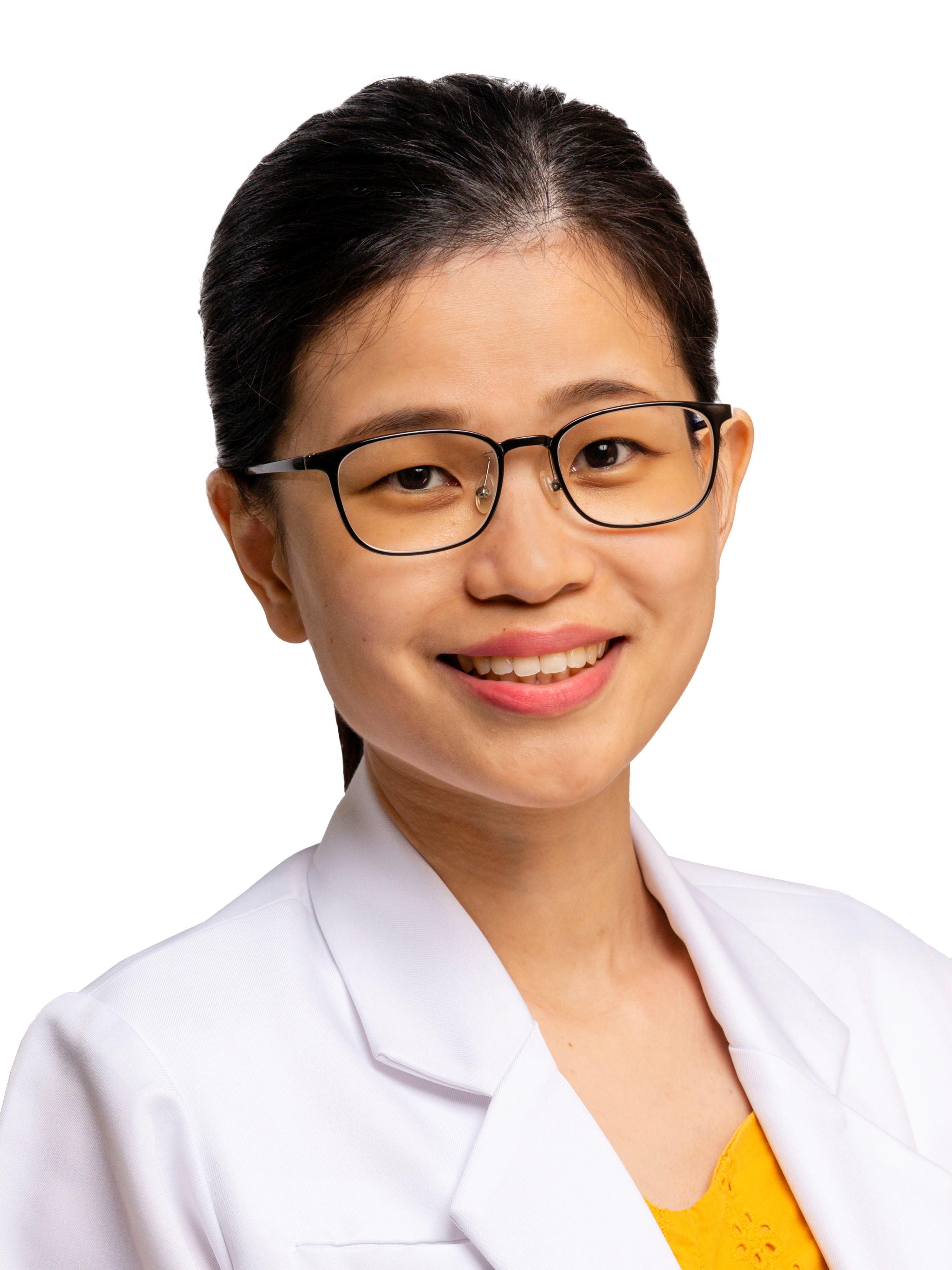 | Ms Wong Chui Ying Principal Dietitian, Department Of Dietetics, National University Hospital Chui Ying is a Principal Paediatric Dietitian at the National University Hospital (NUH), Singapore where she has dedicated the past 18 years to advancing the nutritional care of children and supporting families in managing complex health conditions. She holds a degree in Nutrition and Dietetics from the University of Kebangsaan Malaysia. Her specialty interests include paediatric feeding and nutrition, paediatric renal nutrition and nutritional management of paediatric inflammatory bowel disease. Synopsis: Children’s brains are rapidly developing. Neurodevelopment is not only shaped by environment, but also by the child’s nutrition. This session explores the evidence-based connections between diet quality and neurodevelopment in children. We will highlight key nutrients and dietary patterns that facilitate healthy brain development and share practical strategies that families can employ in their daily lives. |
 | Dr Nicholas Ng Consultant, Division Of Paediatric Endocrinology, National University Hospital Dr Nicholas is a consultant in the Paediatric Endocrinology division at NUH. His clinical and research interests are in paediatric obesity, in which he has published numerous peer-reviewed articles. He is the Asia Pacific representative for the European Society of Paediatric Endocrinology (ESPE) Childhood Obesity Workgroup and has been actively contributing to international childhood obesity guidelines. He also contributed to the international consensus statement on paediatric MAFLD that was recently published. Nicholas currently serves as the Programme Director of the NUHS Paediatric Residency Programme. Synopsis: Obesity is a chronic, multifactorial disease with complex aetiology involving interactions among genetic, epigenetic, microbiota, environmental, endocrine, psychological, and socio-economic factors. Understanding the key risk factors driving childhood and adolescent obesity is essential for the prevention and management of this condition. In this session, the speaker will discuss the role of gut dysbiosis in the pathogenesis of childhood obesity, summarize the scientific evidence behind popular dietary modifications that have been recommended for the management of obesity, and provide an overview of novel pharmacological therapies for the treatment of childhood and adolescent obesity. |
 | Prof Lee Way Seah MSEF Chair Professor in Medicine and Professor in Paediatrics, M Kandiah Faculty of Medicine and Health Sciences, University Tunku Abdul Rahman, Kajang, Selangor, Malaysia Professor Lee Way Seah is MSEF Chair Professor in Medicine and Senior Professor in Paediatrics at University Tunku Abdul Rahman (UTAR). He is a paediatric gastroenterologist and hepatologist as well as educator and has trained more than 20 paediatric GI fellows from Malaysia and overseas. He edited 4 textbooks in general paediatrics and paediatric gastroenterology/hepatology. He is the President of Asia Pacific Society for Pediatric Gastroenterology, Hepatology and Nutrition (APSPGHAN) and Founding President of Malaysian Society of Paediatric Gastroenterology, Hepatology, and Nutrition (MySPGHAN). Synopsis: A therapeutic diet refers to a modified eating plan prescribed by a physician and planned by a dietitian to manage a specific medical condition or meeting specific nutritional needs. It controls specific nutrients and foods to meet a child’s needs, taking into consideration of factors such as age, medical condition, growth requirement and nutritional needs. It may potentially involve modifying macronutrients, micronutrients, or even texture. Examples of therapeutic diets in children include lactose-free, gluten-free, and ketogenic diets, allergen-free diet, high-protein/high-high caloric diet, and other diets for specific inherited metabolic conditions. It's crucial to follow the prescribed diet under medical guidance. Close monitoring by an experienced dietitian is necessary to ensure adherence, safe, effective, and meet the individual’s needs are also important. |
22 August 2025
 | Prof Chiu Cheng-Hsun Professor, Department Of Paediatrics, Chang Gung Memorial Hospital And Chang Gung University, Taiwan Prof Cheng-Hsun Chiu is a Professor of Pediatrics and Infectious Diseases in Chang Gung Memorial Hospital, Chang Gung University College of Medicine in Taoyuan, Taiwan. He received his medical degree from the Chung Shan Medical University and a PhD from CGU. He completed a residency in CGMH, and a postdoctoral fellowship at the Department of Pediatrics, University of British Columbia, Vancouver, Canada. Prof Chiu’s research interests focus primarily on pediatric infectious diseases, clinical microbiology, antimicrobial resistance, vaccines, and microbiome research. Synopsis: The human gut microbiome, a diverse ecosystem of microorganisms within the gut, plays pivotal roles in health and disease. Unveiling the intricate relationships between these microbial communities is crucial for exploring mechanisms underlying human health. Our understanding of how the microbiome influences health and disease has been increasing through multi-omics studies, suggesting microbiome-based therapeutics such as fecal microbiota transplantation should be incorporated into “precision medicine” treatment options. Research estimates that the number of microbes in the intestinal flora is 10 times that of human cells (100 trillion). These microbes, numbering more than 1,000 species, play a key role in maintaining human health. When the intestinal flora is out of balance (dysbiosis), it will affect systemic diseases besides intestinal diseases through increased intestinal epithelial permeability (leaky gut), metabolites, immune reactions, neural effects of the gut-brain axis, and anti-allergic and inflammatory reactions of the gut-lung axis. These diseases include obesity, metabolic diseases, cardiovascular diseases, neurodegenerative diseases, chronic obstructive pulmonary disease, and cancer. Understanding the broad extent to which host-microbiome associations are maintained across populations is revealing personalized host-microbiome phenotypes that can be integrated with other biomarkers to enhance their application in precision medicine. Through interdisciplinary collaboration and technological advancements, we can now harness the power of the microbiome to revolutionize healthcare, emphasizing microbiome-gut approaches to promote holistic well-being while identifying areas of future research. |
 | A/Prof Marion Aw Head & Senior Consultant, Division Of Paediatric Gastroenterology, Nutrition, Hepatology And Liver Transplantation, National University Hospital A/Prof Marion Aw is Head of the Division of Paediatric Gastroenterology, Nutrition, Hepatology and Liver Transplantation at the Department of Paediatrics, NUH. She has an interest in nutrition and feeding issues in children and is the clinical lead for the Interdisciplinary Feeding and Nutrition clinic at NUH. She currently serves on the Nutrition Subcommittee for the Asia-Pacific Society for Pediatric Gastroenterology, Hepatology and Nutrition (APSPGHAN), is a member of the APSPGHAN Council and the secretary general of its executive committee. Synopsis: Microbiota Gut-Brain Axis – Implications For Disorders Of Gut-Brain Interaction The Rome criteria, in the past 2-3 decades, have defined a variety of gastrointestinal symptoms in children (such as dyspepsia, bloating, abdominal pain and constipation), as disorders of gastrointestinal function from a biopsychosocial perspective. As a diagnostic group, these conditions are generally challenging to manage and contribute to significant morbidity in patients and anxiety for families. There is now a growing body of evidence that the gut microbiota and its metabolites play a significant role in the bidirectional crosstalk between the brain and the gut, and that dysbiosis contributes to the pathogenesis of these symptoms through its impact on gut motility and/or low-grade inflammation. Uncovering the impact of this gut dysbiosis would shed light on potential therapeutic interventions for these patients. Picky Eating – More Than Meets The Eye Picky eating or fussy mealtime behaviours are one of the most common feeding related concerns that parents and caregivers have for their young children. When raised to primary healthcare providers, they are not uncommonly labelled as a phase the child will “grow out of”. However, the reason for these feeding difficulties can range from poor mealtime structure or inappropriate snacking to delayed feeding skills, oral-sensory issues as well as underlying organic medical conditions. Whilst the former may be dealt with by the primary care physician, the latter issues would require further evaluation and/or specialist intervention. This talk will use a case-based approach to illustrate the assessment and management of these children with picky eating. |
 | Prof Matthew Chang Provost’s Chair and Professor, Department of Biochemistry, Yong Loo Lin School Of Medicine, National University Of Singapore Prof Matthew Chang is the Executive Director of the National Centre for Engineering Biology in Singapore. He also serves as Director of the Singapore Consortium for Synthetic Biology, the Wilmar-NUS Corporate Laboratory, and NUS Synthetic Biology for Clinical and Technological Innovation. He holds the Provost’s Chair and is a Professor of Biochemistry at the Yong Loo Lin School of Medicine, National University of Singapore. Synopsis: Recent advances in understanding the composition of the human microbiota and its essential roles in health and disease have significantly accelerated the development of therapeutic strategies. Additionally, advancements in synthetic biology have enabled the design of programmable genetic circuits and the reprogramming of cells, paving the way for novel microbiota-based interventions. This presentation will detail our latest progress in engineering commensal microbes into multifunctional platforms with clinically relevant functionalities. Specifically, I will emphasize our efforts to transform these microbes into autonomous therapeutic agents capable of modulating microbiome environments in vivo, targeting infections, metabolic disorders, and cancers. Our research highlights the potential of microbial engineering strategies to rewire host-microbiome interactions. |
 | Prof Chen Chien-Chang Professor, Division of Gastroenterology, Department of Paediatrics, Chang Gung Memorial Hospital, Taiwan Prof Chien-Chang Chen is a clinical physician in pediatric gastroenterology and hepatology. Prof Chen completed residency in Pediatrics at Chang Gung Memorial Hospital and research fellowship at Harvard Medical School/Massachusetts General Hospital. Prof Chen’s research interests focus on gastroenterology, nutrition, health of children, probiotics, microbiota and fecal microbiota transplant. He is currently the deputy director of microbiota therapy center and the professor of pediatrics at Chang Gung Memorial Hospital, Taiwan. Synopsis: Fecal microbiota transplant (FMT) has emerged as a remarkably effective and safe alternative for patients with recurrent or refractory Clostridium difficile infection (CDI) unresponsive to standard antibiotic regimens, with a cure rate of at least 85%. The goal of FMT is to restore a healthy gut microbiome by introducing stool from a healthy donor into the gastrointestinal tract of the patient. There are preliminary indications to suggest that it may also carry therapeutic potential for other conditions such as inflammatory bowel disease, functional gastrointestinal disorders or neuropsychiatric disorders. Donor screening is important to avoid transmission of infections and ensure the safety of the procedure. Ongoing clinical trials will continue to provide insight into this growing field |
 | Dr James Huang Senior Consultant, Division Of Paediatric Gastroenterology, Nutrition, Hepatology And Liver Transplantation, National University Hospital Dr James Huang is a senior consultant and Assistant Professor in the Division of Paediatric Gastroenterology, Nutrition, Hepatology and Liver Transplantation. He completed his advanced paediatric gastroenterology fellowship training at the Hospital for Sick Children Toronto Canada and is the clinical lead for the Paediatric Inflammatory Bowel Disease and Paediatric GI Endoscopy service. Synopsis: Gastrointestinal complaints in children, such as abdominal pain, colic and altered bowel habits, are one of the most frequent reasons parents seek healthcare consultation. There exist numerous products on the market, from probiotics to other digestive supplements, that profess to improve a child's gut health. Yet, the scientific evidence backing the appropriate use of such products is highly variable, leading to much confusion amongst parents and healthcare professionals alike. We aim to discuss a practical and evidence-based approach to common paediatric case scenarios in the clinic, and how to position the rational use of probiotics. |
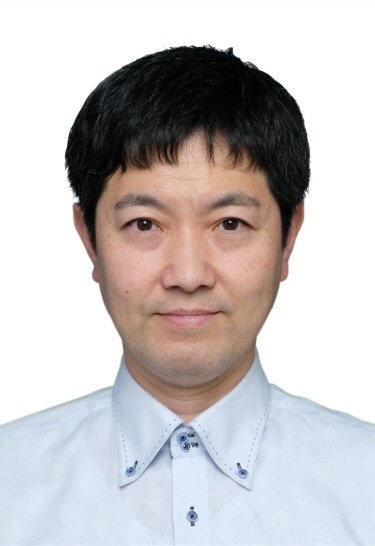 | Dr Odamaki Toshitaka, Ph.D. Visiting Professor, Laboratory of Human Residential Bifidobacterium (HRB) Research, Graduate School of Biostudies Kyoto University, Kyoto, Japan Dr Toshitaka Odamaki is a professional affiliated with Morinaga Milk Industry Co., Ltd., specializing in the research of gut microbiota and probiotics. He holds a PhD from the University of Tokyo. His career at Morinaga Milk Industry has seen him progress from a factory role finally to a senior research scientist. He currently serves as a Section Head. His academic contributions extend to Juntendo University, University of Tokyo, Kansai University, and Kyoto University. He has also spent time as a company-sponsored research trainee at RIKEN, Japan, and a researcher at APC Microbiome Institute, Ireland. He is currently a Visiting Professor at Kyoto University. Synopsis: Bifidobacterium species rapidly become the dominant bacteria in an infant's gut, largely because they can efficiently metabolize human milk oligosaccharides (HMOs) and resist lysozyme, giving them a competitive edge. While babies acquire these bacteria from their mothers, they also pick them up from their household environment. These human-residential bifidobacteria (HRB) are vital for shaping a baby's immune system. They produce special compounds like indole-3-lactic acid (ILA), which help to reduce inflammation and maintain immune balance. This highlights a fascinating co-evolutionary link that benefits HRB in breastfed infants. Beyond these beneficial compounds, Bifidobacterium cell components themselves can independently trigger a type of innate immune memory. They essentially reprogram immune cells, leading to a more regulated immune response that's thought to be crucial for developing immune tolerance early in life. Bifidobacterium also plays a protective role by suppressing harmful bacteria like Clostridium perfringens, which is often found in infants born via C-section. They do this through competition and by potentially sharing nutrients, underscoring their importance in preventing opportunistic infections in a baby's gut. Three specific Morinaga probiotic strains—B. longum BB536, B. breve M-16V, and B. infantis M-63 are widely used globally and have shown various clinical benefits, including modulating the immune system, reducing allergy risks, and supporting healthy infant development. In essence, both the byproducts and cellular components of HRB work together and independently to foster immune tolerance in early life. These discoveries also shed light on why human breast milk is so effective at promoting Bifidobacterium dominance in an infant's gut. |
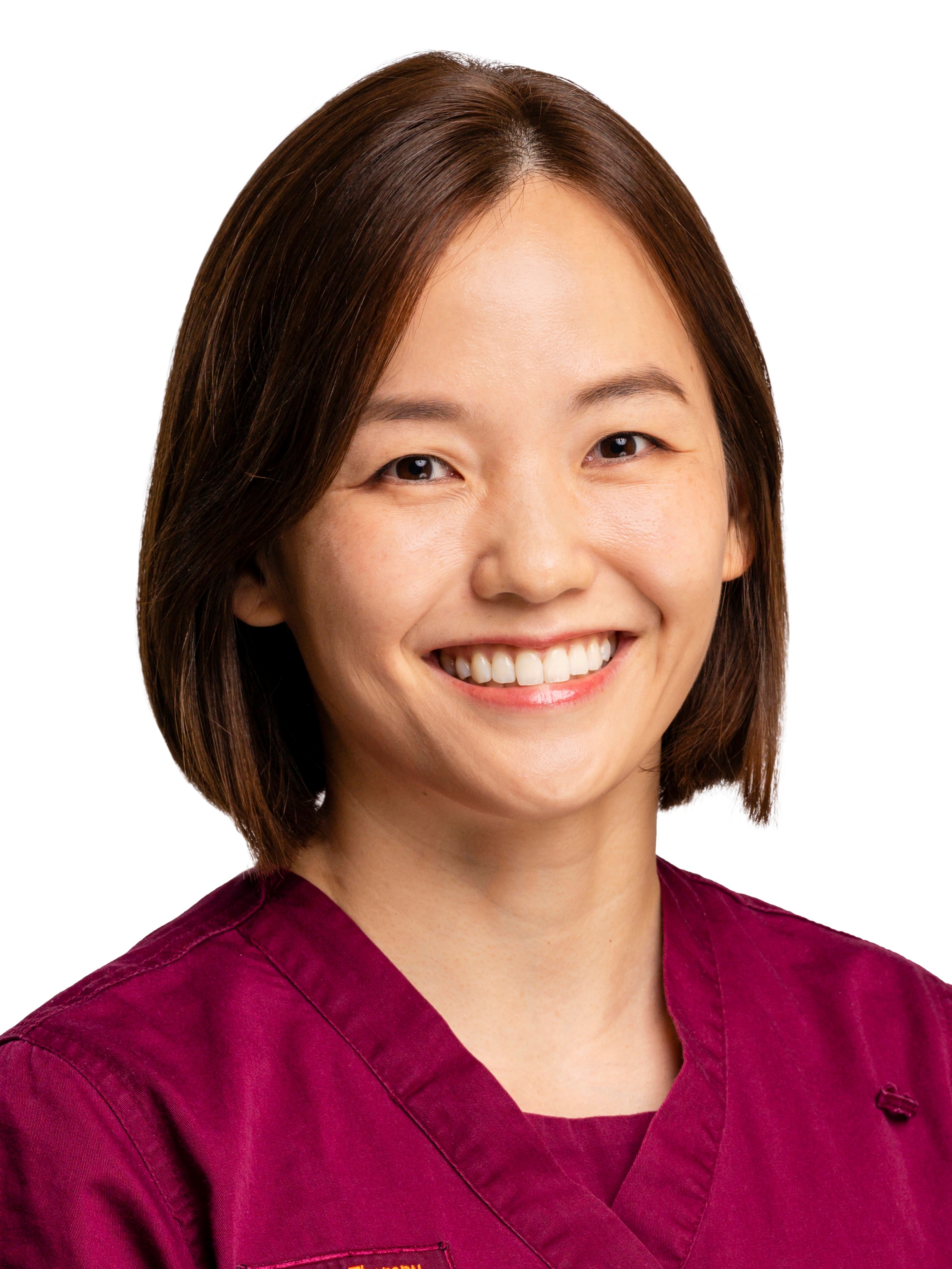 | Ms Jocelyn Tan Senior Speech Therapist, Department Of Rehabilitation, National University Hospital Jocelyn Tan is a Senior Speech-language Therapist at the National University Hospital. Jocelyn has an avid interest in working with children with dysphagia and feeding difficulties. She has experience working with children in the paediatric and neonatal intensive care units, patients with tracheostomy and those who require instrumental swallowing studies such as Videofluoroscopy Swallow study (VFS) and Fibreoptic Endoscopic Evaluation of Swallowing (FEES). Jocelyn enjoys working and collaborating in a multi-disciplinary setting with the doctors, nurses, dietitians, and other professionals, to ensure the needs of patients and their families are met in a holistic manner. |
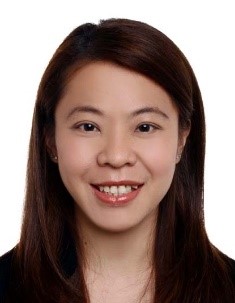 | Ms Ng Siau Hwei Head & Senior Principal Psychologist, Division Of Paediatric Psychological Services, National University Hospital Ng Siau Hwei is Senior Principal Psychologist and Head of Paediatric Psychology at the Khoo Teck Puat – National University Children’s Medical Institute (KTP-NUCMI), National University Hospital. She is adjunct senior lecturer for the clinical psychology programmes at the National University of Singapore and James Cook University Singapore. A clinical psychologist by training, Siau Hwei has special interest in feeding-related issues in young children. Synopsis: This talk will address the multi-faceted aspects of feeding development in children, and discuss the interplay between cognitive, behavioural and oral motor development, and their collective impact on feeding competence. Evidence-based strategies to support mealtime mastery will be discussed, including approaches to optimise oral motor skills, manage behavioural challenges, and foster positive feeding relationships. By having a deeper understanding of the developmental foundations underlying feeding behaviours in children, attendees will be able to guide families to create positive mealtime experiences that support children's growth and nutrition. |
 | Dr Tammy Lim Consultant, Division of Paediatric Gastroenterology, Nutrition, Hepatology And Liver Transplantation, National University Hospital Dr Tammy Lim is a consultant at the Child Development Unit, as well as, the Division of Paediatric Gastroenterology, Nutrition, Hepatology and Liver Transplantation, at the Khoo Teck Puat - National University Children's Medical Institute, National University Hospital. Dr Lim is part of the Paediatric Feeding and Nutrition Clinic team, which sees children with feeding and swallowing problems. She is passionate about helping families of children with feeding difficulties, particularly children on the autism spectrum. |
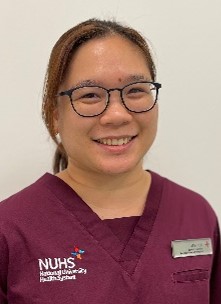 | Ms Ada Tok Senior Speech Therapist, Department Of Rehabilitation, National University Hospital Ms Ada Tok is a Senior Speech Therapist at the National University Hospital (NUH) and a member of the Paediatric Feeding and Nutrition Clinic team. She has worked in both community early intervention and acute hospital settings, supporting children with complex feeding difficulties and selective eating behaviours. Ada is dedicated to providing holistic, family-centred care and works closely with multidisciplinary teams to deliver tailored, evidence-based interventions. With a passion for helping children achieve safe and positive mealtimes, she continues to empower families in their feeding journeys through compassionate and collaborative clinical practice. Synopsis: Feeding difficulties are common in early childhood. Many children experience transient ‘picky eating’ during this period and their challenges may resolve on their own without much intervention. Others, on the other hand, have feeding difficulties, which persist and require specialized care from an interdisciplinary feeding and nutrition clinic. In this workshop, we hope to share some basic strategies you may implement in your practice, and to also help you identify which cases will benefit from an interdisciplinary approach. |
 | Dr Michelle Tan Senior Consultant, Division Of Paediatric Gastroenterology, Nutrition, Hepatology And Liver Transplantation, National University Hospital Dr Michelle Tan is a senior consultant in the division of Paediatric Gastroenterology, Hepatology, Nutrition and Liver Transplantation team. In addition to general paediatric gastrointestinal diseases, Dr Tan’s interests are in childhood nutrition, gut motility, gastro-esophageal reflux disease and feeding difficulties in children. She is part of the multidisciplinary team running the Feeding Clinic and Aerodigestive Clinic in NUH. She is also active in education and is a member of the paediatric residency core faculty programme. Synopsis: Potpourri Of Clinical Cases Feeding difficulties often co-exist in patients with complex medical conditions and these can be challenging to manage. Feeding problems may also be the initial presentation of a medical condition. Through the sharing of cases during my talk, I aim to share some insights to these problems and highlight the importance of a multi-disciplinary team in the management of these children. |
23 August 2025
| A/Prof Mary Beth Son Clinical Chief of Immunology, Boston Children’s Hospital and Associate Professor of Paediatrics, Harvard Medical School A/Prof Mary Beth Son attended the University of Massachusetts Medical School and then completed internship, residency and chief residency in Paediatrics at Boston Children’s Hospital (BCH), followed by fellowship in Paediatric Rheumatology at BCH. She is an Associate Professor of Paediatrics at Harvard Medical School. She is the Section Chief of Paediatric Rheumatology and Clinical Chief of the Division of Immunology at BCH. She pursues clinical research and has received funding from the Centers for Disease Control and Prevention, the American Heart Association and BCH to support her research interests, including outcomes in Kawasaki disease, childhood-onset systemic lupus erythematosus as well as Multisystem Inflammatory Syndrome in Children. Synopsis: Kawasaki disease (KD) is the leading cause of acquired heart disease in children in high income countries. The goals of this talk include reviewing current theories of KD pathogenesis, risk factors for the development of coronary artery aneurysms, treatment options for primary intensification and rescue therapy for IVIG resistance, and the long term prognosis of Kawasaki Disease. |
 | Adj A/Prof Soh Jian Yi Senior Consultant, Division Of Paediatric Allergy, Immunology And Rheumatology, National University Hospital Adj A/Prof Soh Jian Yi is a senior consultant in the Division of Allergy and Immunology, Department of Paediatrics, Khoo Teck Puat – National University Children's Medical Institute. His main clinical interests are in eczema and food allergy, such as the food oral immunotherapy program in NUH. Synopsis: Dust mites play a central role in common allergies in Singapore. 'Sinus' is a common phrase used by lay-people to describe allergic rhinitis. When is allergic rhinitis more than an inconvenience? What is the significance of dust mites, in asthma? What are the subtle or unusual ways that dust mite cause problems, outside of the airways? This session will discuss the answers to these, and other common questions posed by patients and doctors about dust mites and allergies. |
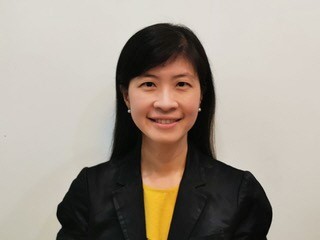 | Ms Jessie Ooh Senior Principal Psychologist, National University Polyclinic Jessie is a registered psychologist with two decades of experience in child development, sleep and behavioural interventions. She set up the Paediatric Psychological Services Division and Singapore’s first child behavioural sleep services in Singapore in NUH. Her strength is in bridging clinical practice with an Innovator Award for her digital child development app. Since March 2023, she co-leads with A/Prof Daniel Goh the Sleep Easy Programme, the first in Singapore to screen and provide interventions to children in the community. Synopsis: Sleep challenges in children are a common yet often under-recognised concern with significant impacts on development, learning and family well-being. With specific focus on the Sleep Easy Programme, the first community sleep assessment and intervention programme for children 0-3 years old in Singapore, clinical insights on the assessment and management protocol of the programme will be shared. Based on the findings on the programme, the evidence-based strategies will address behavioural sleep problems, and how to support families in establishing effective routines will be highlighted. Drawing on the experiences from collaborative programmes, we will also discuss practical interventions tailored to infants with mothers who have depressive symptoms and children from families with less resources. |
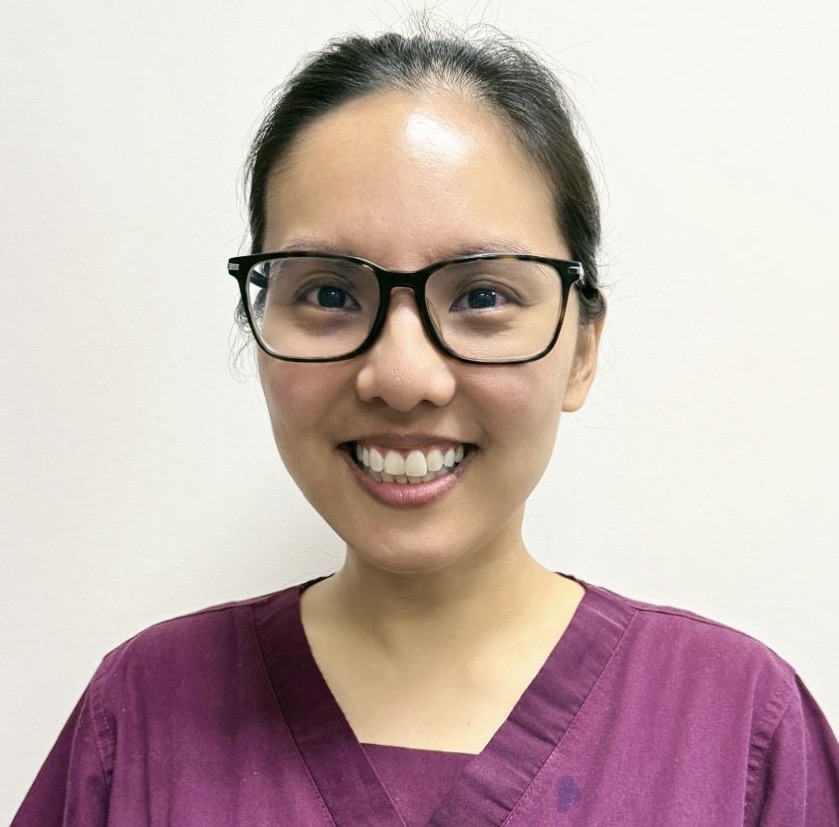 | Ms Chiang Jing Jing Senior Occupational Therapist, Child Development Unit, National University Hospital Ms Chiang Jing Jing, a Senior Occupational Therapist at National University Hospital's Child Development Unit, holds a Master's degree in Occupational Therapy. She's certified in Sensory Integration and is an Early Start Denver Model trainer. Jing Jing's work extends beyond clinical practice; she supervises and educates, guiding parents and students in supporting children with special needs. As Clinical Education Lead, she trains new occupational therapists. Dedicated to helping children and families, Jing Jing applies her expertise to provide customized interventions and shares her knowledge with others in the field. |
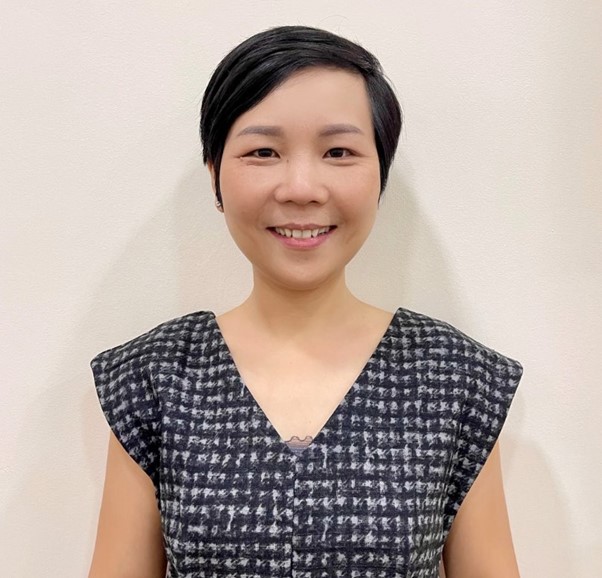 | Ms Zhang Guiyue Senior Psychologist, Child Development Unit, National University Hospital Ms Zhang Guiyue is a Senior Psychologist at the Child Development Unit (CDU), National University Hospital, Singapore. She is a Singapore Registered Psychologist and Singapore Registry of Psychologists (SRP) approved clinical supervisor for trainee Psychologists. Ms Zhang completed her specialized training in applied behavior analysis and school neuropsychology in the United States and obtained credentials as a Board-Certified Behavior Analyst and a diplomate of American Board of School Neuropsychologists. At CDU, Ms Zhang assumes the roles of both a diagnostician and therapist providing diagnostic assessments and therapy for preschool children with developmental, behavioral, and emotional difficulties. She is also the program manager of the unit, who oversees clinical program implementation and quality monitoring. Ms Zhang is also involved in clinical research and is leading/had led, as principal investigator, research projects focusing on school transition and effects of parent-implemented autism intervention. Synopsis: Emotional dysregulation and meltdowns affect an estimated 25-30% of preschoolers, causing distress for families. This workshop will explore the multifaceted causes of emotional dysregulation and examine the arc of meltdowns in young children. The session will discuss the stages involved in a meltdown and equip participants with strategies for early recognition and effective management. Additionally, preventive measures will be discussed to mitigate the occurrence of emotional dysregulation. The primary objective of this workshop is to enhance participants' understanding of emotional dysregulation among preschoolers. This knowledge will improve their ability to support parents in understanding, preventing, and managing meltdowns in young children, as well as recognizing when to seek timely professional help. |
 | Prof Ian Maconochie FRCPCH FRCPI FRCEM PhD Consultant in Paediatric Emergency Medicine, Imperial College Healthcare Trust NHS Professor of Practice in Paediatric Emergency Medicine, Imperial College, London Prof Ian Maconochie is the Founder of the Association of Paediatric Emergency Medicine (PEM) UK and Ireland, where he played a pivotal role in establishing the PEM training curriculum across the UK and Europe. He served as Registrar of the Royal College of Paediatrics and Child Health from 2012 to 2017, and as Chair of Paediatrics for the European Society for Emergency Medicine (EUSEM) from 2014 to 2017. A key contributor to paediatric resuscitation guidelines since 1992, he has worked with the European Resuscitation Council, Resuscitation Council UK, and the International Liaison Committee on Resuscitation, and currently serves as Honorary Secretary of the Resuscitation Council UK. He is also the first Professor of Practice in Paediatric Emergency Medicine at Imperial College London. Synopsis: The talk will cover the use and misuse of POCT, the problems and how they are approved, what is available and when/could it be used. The basis for its use in healthcare, the extent of its development and what pitfalls there are, how it can aid risk stratification of specific patient populations re. regards altering the likelihood for the presence (or occasionally, for absence) of a disease state. Incidental findings have to be considered in the patient management and whether or not harm or benefit arises from POCT, and about the processes verification of clinically significant findings. The use of POCT as a screening tool will also be discussed. |
 | Dr Gayle Appleby Senior Resident Physician, Children’s Emergency, National University Hospital Dr Gayle Fleur Appleby MBBS, MRCPCH, MSc Med-Ed, is a Senior Resident Physician at National University Hospital (NUH). She works in Children’s Emergency (CE) and/or the Urgent Care Clinic (UCC). She completed her undergraduate degree at Imperial College, London, and general paediatric speciality training across South London. She is passionate about medical education, adolescent wellness and PaedsENGAGE. When not on shift Gayle is likely to be found reading or topping up her vitamin D by walking along the Rail Corridor. Synopsis: PaedsENGAGE is a national pilot programme, co-run by National University Hospital (NUH) and KK Women’s and Children’s Hospital (KKH), which works closely with General Practitioners (PaedsENGAGE GP Partners) to create a strong paediatric care support network and enable the right siting of care for patients. The talk draws upon the team’s experiences and aims to uphold three key programme facets: 1. Engagement: we hope this interactive session will keep you on the edge of your seats as we take you on a journey from kerbside consults to clinical conundrums and all that’s in-between! 2. Education: during and following the talk we hope to generate some educational take-away pearls. 3. Empowerment: generate confidence for you to manage future similar clinical cases. |
 | Dr Chiong Yee Keow Head, Division of Community Family and Child Health, National University Centre for Women and Children, National University Health System Dr Chiong Yee Keow is a consultant paediatrician and is the inaugural Head of the Division of Community Family and Child Health at the National University Centre for Women and Children (NUWoC), which delves in upstream population health initiatives for families and children in the NUHS cluster. Her team collaborates with both international and local stakeholders to bridge the gap between the tertiary hospital, primary care, and the community to improve family and child health in the NUHS cluster. Synopsis: Paediatricians and GPs play a vital role beyond clinical care, influencing child health through community engagement and development. This session explores how primary care professionals can collaborate with local services, schools, and policymakers to address social determinants of health. By integrating community-led initiatives, advocating for child-friendly policies, and supporting vulnerable families, healthcare professionals can help create healthier environments for children. Practical case studies will highlight successful partnerships and interventions that improve long-term outcomes. Attendees will gain insights into leveraging their roles to drive positive community change, ensuring that every child has the opportunity to thrive. This discussion reinforces the idea that healthcare providers are not just caregivers but also key contributors to broader societal well-being. |
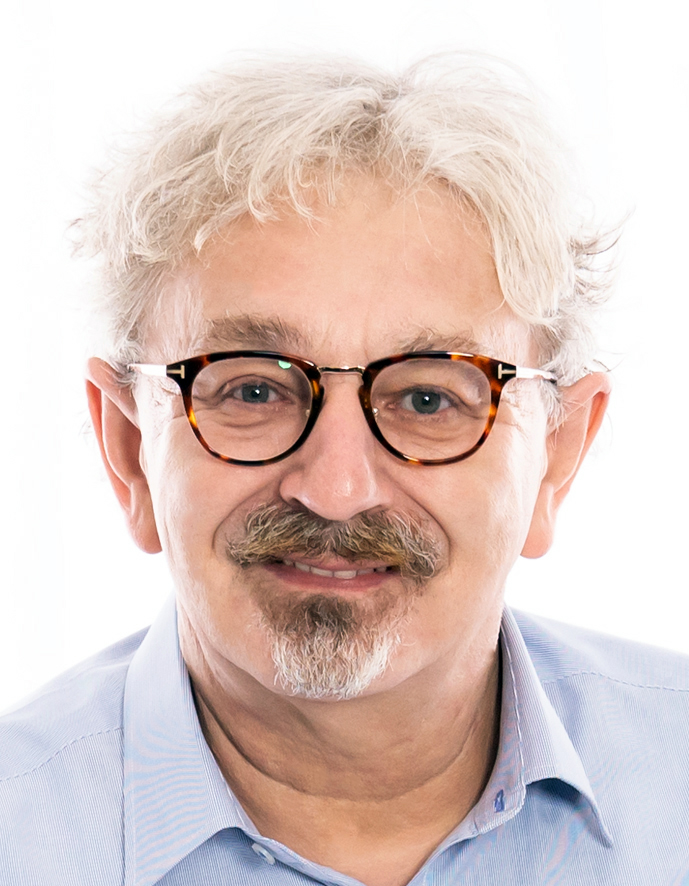 | Prof Hugo Van Bever Senior Consultant, Division Of Paediatric Allergy, Immunology And Rheumatology, National University Hospital Professor Hugo PS Van Bever joined NUH as a Senior Consultant in Paediatric Allergy and Immunology and NUS as a Professor in June 2002. He completed his medical studies at the State University of Ghent, Belgium in 1978 and did his training in paediatrics at Children's Hospital, State University of Ghent, Belgium from 1978 to 1983. He became a Resident thereafter in Paediatric Allergy and Pulmonology, University of Antwerp, Belgium from 1984 to 1993. There, he became an Associate Professor in 1993 and Professor in 1997. Prof Van Bever was also the Head of the Department of Paediatrics, University of Antwerp, Belgium from 1997 to 2001. He was President of the Asian Pacific Academy of Paediatric Allergy, Respirology and Immunology (APAPARI) between 2018 and 2021. His main research interest areas are paediatric allergy and paediatric respiratory infections. These include immunotherapy, atopic eczema, food allergy and primary prevention of allergy. In the area of respiratory infections, his main interests are on viral bronchiolitis, and on relationship between viral infections and allergy. |
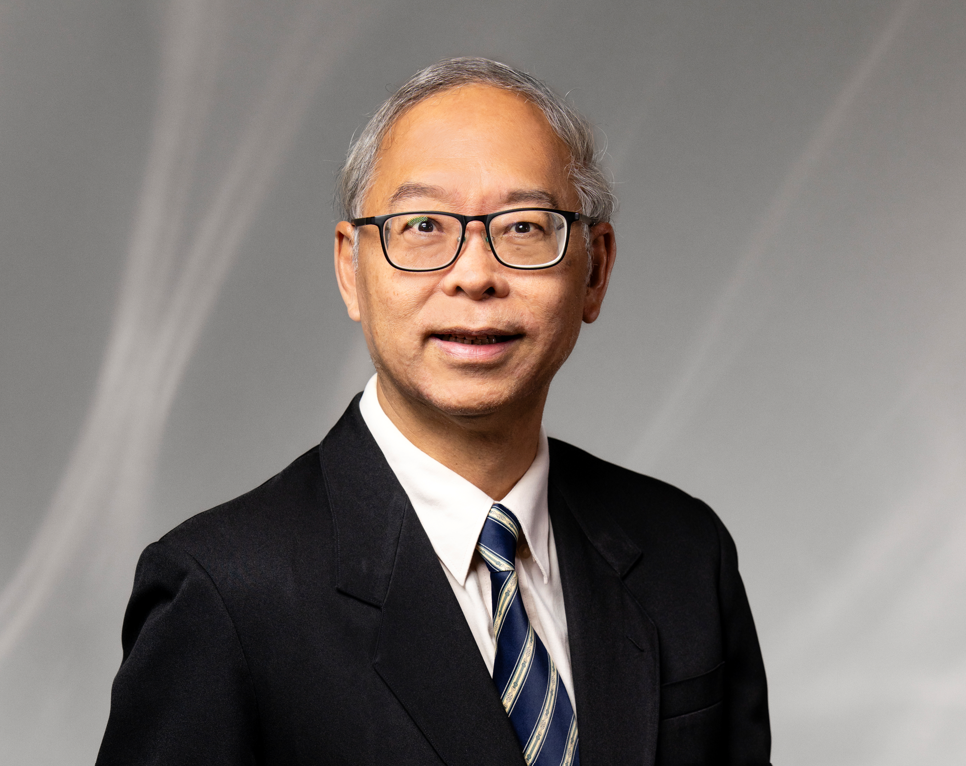 | A/Prof Ong Hian Tat Head & Senior Consultant, Division Of Paediatric Neurology, National University Hospital A/Prof Ong Hian Tat is currently Senior Consultant and Head of the Division of Paediatric Neurology at NUH. He graduated from NUS in 1987. His general paediatric training was undertaken principally in NUH with a short stint in Tan Tock Seng Hospital. He obtained qualification for Master of Medicine in Paediatrics in 1993. His advanced specialist training continued at NUH before he went to Cleveland Clinic Foundation in Cleveland, USA, for his HMDP Fellowship by the Ministry of Health in paediatric neurology and epilepsy from 1997 to 1998. Following the overseas training, he developed the paediatric epilepsy monitoring service at NUH. His research interests include paediatric epilepsy and neurophysiology, as well as paediatric neurorehabilitation. |
24 August 2025
 | A/Prof Ng Kar Hui Senior Consultant, Division of Paediatric Nephrology, Dialysis and Renal Transplantation, National University Hospital A/Prof Ng Kar Hui is a senior consultant in Paediatric Nephrology in NUH and associate professor in NUS Department of Paediatrics. Dr Ng has a special interest in genetic kidney disease. She started the collaborative network DRAGoN (Deciphering Diversities: Renal Asian Genetics Network) to study this across South Asia; and she founded the Renal Alliance for PrecIsion Diagnosis in Singapore (RAPIDS) which is a multi-disciplinary network where genetics experts, scientists and bioinformaticians work closely with nephrologists to provide genetics services within the nephrology clinics in Singapore. Synopsis: Haematuria affects 1% of children in the general population. About 25% and 2% of these children have autosomal dominant (AD) and sex-linked Alport syndrome respectively. We found Alport syndrome mutations in 1 out of 150 Singaporeans. In Renal Alliance for PrecIsion Diagnosis in Singapore, 1 in 6 patients had Alport syndrome. The majority are autosomal dominant. Nearly 100% of men with sex-linked Alport syndrome face kidney failure by 40 years if untreated. With AD form, up to 30% can develop kidney failure by age 60. With early diagnosis and initiation of anti-proteinuric medications, we can delay kidney failure by >=2 decades. The earlier the initiation of treatment, the longer the delay of kidney failure. Through real-world cases, the talk will inform paediatricians how patients with haematuria should be better managed. |
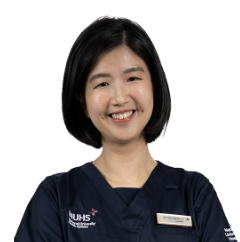 | Dr Seo Woon Li Head & Consultant, Children's Emergency, National University Hospital Dr Seo Woon Li is currently the Head & Consultant of the Division of Children’s Emergency (CE). Her area of clinical expertise is in emergency and urgent paediatric care, and primary and community paediatric health. Dr Seo manages patients at both the Children's Emergency and the Children's Urgent Care Clinic @ Bukit Panjang. She sits on the Emergency Medicine Residency Advisory Committee and is Associate Programme Director of the Graduate Diploma in Child and Adolescent Health, providing continued professional development of medical professionals in the delivery of care to children and adolescents in the community. She is also the director of the institution's Residency Leadership Development Program (NUHS RLDP). Additionally, Dr Seo is a member of the Core Committee of the Standardised Patient Programme at the Centre for Healthcare Simulation, NUS Yong Loo Lin School of Medicine and sits on the NUS Medicine Admissions Committee. Synopsis: Children and adolescents are characteristically physical active. This can predispose them to injuries. Conversely, a child who limps and is no longer able to be as active as before desired raises equal parts worry and fear. This session hopes to suggest a structured, quick yet comprehensive approach that can be applied in a busy practice. The thresholds for evaluation and primary care management versus referral for emergency and specialist intervention will be discussed, alongside red flags and pitfalls in assessing a limping child. |
 | Dr Michelle Tan Senior Consultant, Division Of Paediatric Gastroenterology, Nutrition, Hepatology And Liver Transplantation, National University Hospital Dr Michelle Tan is a senior consultant in the division of Paediatric Gastroenterology, Hepatology, Nutrition and Liver Transplantation team. In addition to general paediatric gastrointestinal diseases, Dr Tan’s interests are in childhood nutrition, gut motility, gastro-esophageal reflux disease and feeding difficulties in children. She is part of the multidisciplinary team running the Feeding Clinic and Aerodigestive Clinic in NUH. She is also active in education and is a member of the paediatric residency core faculty programme. Synopsis: Paediatric Pearls: Prolonged Diarrhoea – Updates On Workup And Management Prolonged diarrhoea with no discernible infectious aetiology warrants evaluation. I will review the approach to evaluation of diarrhoea with focus on aetiology, investigations and management. Further, diarrhoea can be classified as ‘watery’, ‘fatty’ and ‘bloody’ based on stool characteristics. Relevant history, physical examination findings, first and second-line investigations which help in differentiating the different types of diarrhoea will be discussed. Principles of management and recent advances in diagnostics and therapeutics of diarrhoea will also be highlighted in the talk. |
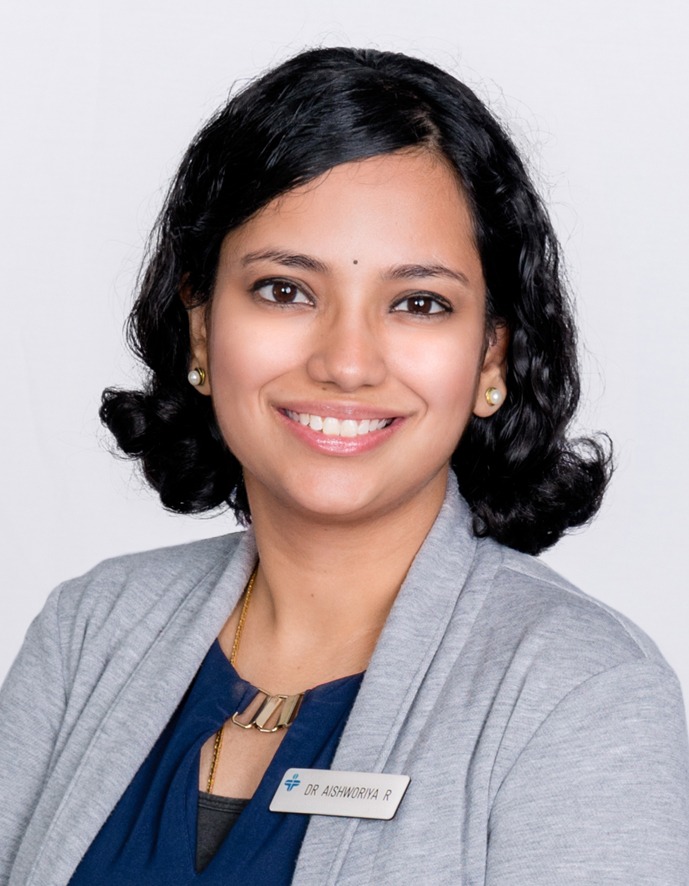 | Dr Aishworiya Ramkumar Senior Consultant, Division Of Developmental And Behavioural Paediatrics, National University Hospital Dr Aishworiya Ramkumar is a developmental behavioural paediatrician at the Child Development Unit, National University Hospital, Singapore. She completed fellowship training at the prestigious UC Davis Medical Investigation of Neurodevelopmental Disorders (MIND) institute USA, in 2022. Dr Ramkumar’s clinical interests include autism spectrum disorder and socio-emotional difficulties in children. In addition, she has been awarded career-development research grants for her work from the National Medical Research Council, Singapore. Her research interests include autism screening and improving outcomes in autism, with several peer-reviewed publications of her work in international journals. She also recently co-lead the workgroup that produced the 2nd edition of the Clinical Practice Guidelines for Autism in Children and Adolescents in Singapore. Synopsis: Autism spectrum disorder is a leading cause of developmental delays among children and is growing in prevalence over the years. There has been significant research within the autism field to look at treatment options as there are currently no medications that are effective for the core symptoms of autism. In parallel, there have been numerous complementary and alternative medicine (CAM) that have been purported to treat autism. This talk will discuss the various CAM that has been evaluated, the potential harm and benefits of each and considerations is using these in children on the autism spectrum. It will also highlight useful aids for decision making for practitioners to advice caregivers on CAM use. |
 | Dr Ting Fang Ni Consultant, Division of Dermatology, Department of Medicine, National University Hospital Dr Ting Fang Ni is a consultant in the Division of Dermatology at National University Hospital, the Children's Emergency Department at Khoo Teck Puat - National University Children's Medical Institute, and the NUWoC Children’s Clinic at Ng Teng Fong General Hospital. She completed her MBBS with Honours at Monash University (Australia) and her Paediatric residency training at NUH, where she obtained her Master of Medicine (Paediatrics) and MRCPCH. Dr Ting also completed a two-year Clinical Fellowship in adult and paediatric Dermatology at NUH in 2023. Synopsis: Skin disease in children can greatly impact the quality of life of young patients and their caregivers. Using case vignettes, we will explore the diagnosis and management of common paediatric dermatological conditions encountered in primary care including eczema, acne, urticaria, skin infections, hair and nail disorders. Emphasis will be placed on identifying red flags, appropriate treatment strategies and when to refer to specialists. Additionally, practical advice on sun protection and establishing a daily skincare routine for children will be discussed. This session will equip all practitioners with essential knowledge to effectively manage common dermatological issues in their daily clinical practice. |
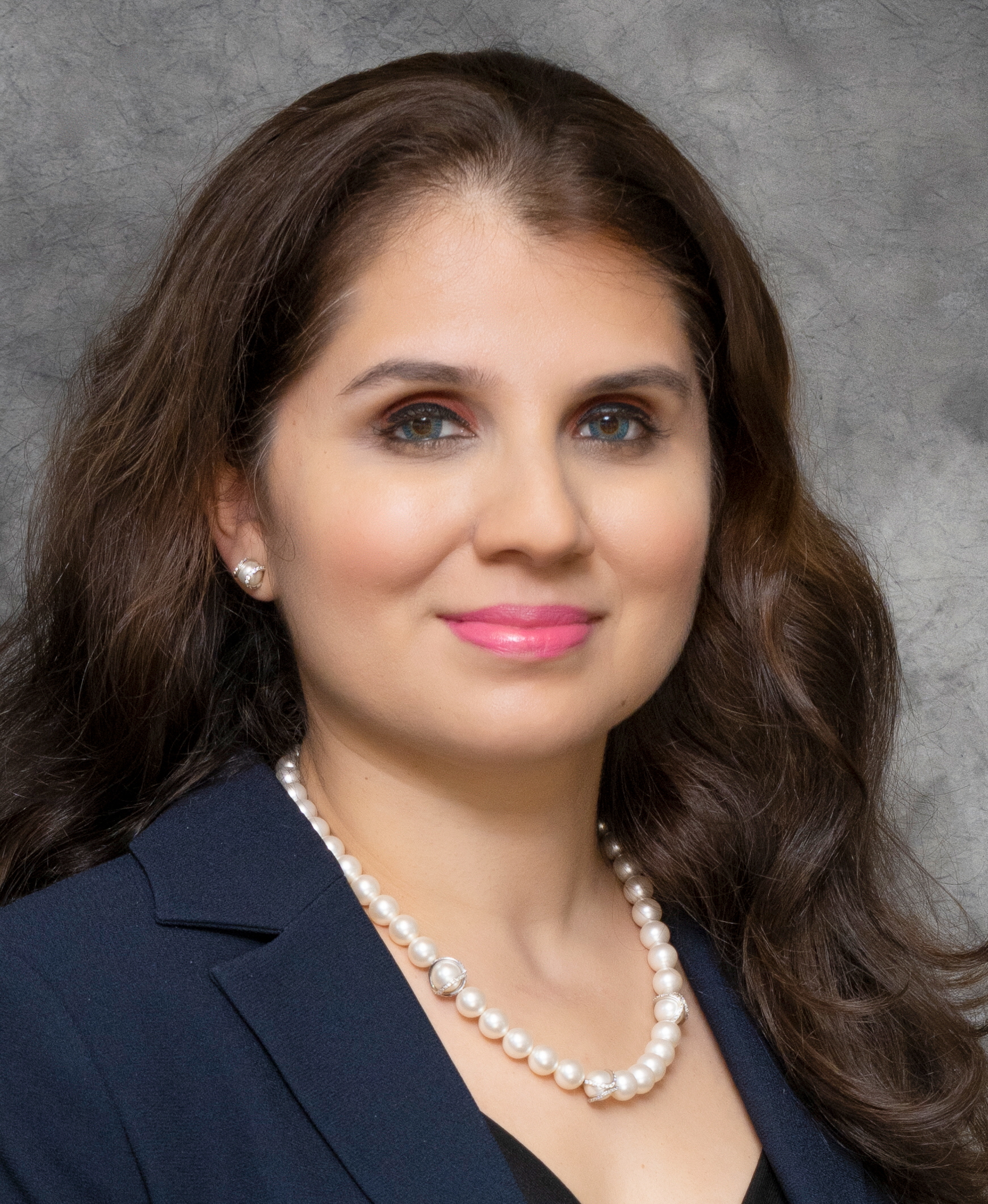 | Dr Nau’shil Kaur Consultant, Department Of Obstetrics & Gynaecology, National University Hospital Dr Nau’shil Kaur Randhawa is an accredited specialist in Obstetrics and Gynaecology. She provides both obstetric and gynaecological services. Her special interests are in adolescent gynaecology and menopause. She runs a dedicated adolescent gynaecology clinic at the National University Hospital which provides consultant led care to adolescent girls. Common reasons for referral include menstrual problems, contraception counselling, treatment and follow up for sexually transmitted infections, teenage pregnancies and sexual assault. Dr Nau’shil is also a clinical lecturer with the NUS Clinical Faculty Scheme and is active in undergraduate and postgraduate education. Synopsis: Dr Nau'shil will be addressing sexual health issues in our adolescent girls by sharing case scenarios which will highlight some of common reasons for referral to the adolescent gynaecology clinic. These include contraception counselling, sexually transmitted infections, teenage pregnancies and sexual assault. She will be covering presenting symptoms and signs, recommended investigations, management and follow-up. In addition, she will highlight the importance of multidisciplinary care in the care of adolescent girls. |
